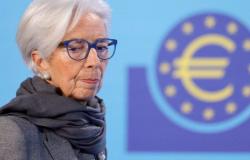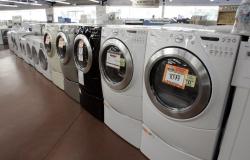What the EU is contesting in Meta
What does the Commission argue? That the binary choice “forces users to consent to the combination of their personal data and does not provide them with a less personalized but equivalent version of Meta’s social networks”, it says in a note. According to Brussels, Meta’s “pay or consent” model is not “compliant with the DMA, as it does not meet the necessary requirements of Article 5, paragraph 2”. To ensure compliance with the DMA, users who do not consent “they should still have access to an equivalent service that uses their personal data lessin this case for the personalization of advertising.”
Meta now has the opportunity to defend itself by examining the documents in the case. Through a spokesperson, it declared: “The advertising-free subscription model is in line with the directives of the highest European Court and complies with the DMA. We are open to a constructive dialogue with the European Commission to complete this investigation.”
For now it is not a “conviction”, so much so that we are still at the end of the preliminary phase. The Commission will conclude the investigation within 12 months of the initiation of the proceedings.March 25, 2024.
The Apple Case
In recent days, it was Apple’s turn. Over the years, Apple had always managed to stay off Brussels’ radar while other giants such as Microsoft (already in 2004 with Mario Monti as Competition Commissioner), Google and Intel received billion-dollar fines. Now, after the 1.8 billion fine in March (an appeal has been filed) for disputes with Spotify on the music streaming market, it has another open front for its App Store, the iPhone application store. The issue once again revolves around the application of the Digital Markets Act (DMA), the regulation operational since 2023 that aims to regulate the market practices of the so-called digital “gatekeepers”, companies with a significant influence on online markets that the EU has listed according to precise quantitative rules.
The European Commission recently communicated to Apple its preliminary opinion according to which the App Store rules would violate the DMA. For Margrethe Vestager «Apple does not fully allow “steering”». With this term, the Vice President of the Commission with responsibility for Antitrust, refers to the fact that developers would be prevented from freely directing consumers towards alternative offers, effectively limiting competition. In short: on devices with the «bitten apple» on them it would be too complex and cumbersome to make payments outside the App Store, within which Apple collects a 30% commission (reducible under specific conditions), on all transactions. This is a first point. But there is more, since the Commission has also started a new non-compliance procedure against the company led by Tim Cook regarding the new contractual requirements for developers, including the controversial «Core Technology Fee», a commission applied to apps downloaded over a million times.
Accusations and replies
In practice, Apple has allowed – with a clear lack of enthusiasm – that users can download apps from online stores alternative to the official one, but still inserting a “tax” of 50 cents per download. The application has a very complex case law, but in summary it would mainly hit well-known apps, with many millions of downloads: those, for example, of rivals Spotify and Epic Games with its beloved game Fortnite. Apple – which a few weeks ago softened the rules of the Core Technology Fee precisely to accommodate the Union – risks sanctions of up to 10% of global revenue, with the possibility of reaching 20% in the case of repeated violations. Considering the turnover of 383 billion dollars recorded in 2023, the potential fines could reach astronomical figures.
The response from Cupertino was firm but conciliatory. The company said it had made changes to comply with the DMA and that it was “confident that the plan complies with the law.” But it added that “all App Store developers, including those who include links in their applications that take users to the web to complete purchases, benefit from Apple’s proprietary technology and tools, protected by intellectual property.”
However, the confrontation between the EU and Big Tech is not limited to Apple.
Other open cases
Per Alphabetconcerns are about the preference given to its own vertical search services, such as Google Shopping and Google Hotels. Amazon is under scrutiny for its marketplace ranking practices.
We have already spoken about Meta.
Another notable case concerns Microsoft and its Teams software: the European Commission has raised concerns that the inclusion of video conferencing software in the Microsoft 365 (formerly Office 365) package may have limited competition in the video calling and remote collaboration sector.
The expert: DMA is useful, here’s why
«The DMA may seem like a typical European case of hyper regulation, but at this time it is necessary – he explains Stephen Epiphanypresident of the Foundation for Digital Sustainability -. In a context of historically weak antitrust in Europe, an ex ante regulatory approach can be useful”, he adds. Epifani also underlines the effectiveness of these regulations to maintain a high level of attention on fundamental values, especially among the younger generations.
«We are losing the perception of the value of elements such as privacy or freedom of choice. In this context, it is the legislator’s duty to reiterate its importance”, he explains, placing his trust in the fact that EU directives have the potential to foster the development of a European ecosystem more open to innovation. However, he warns that regulations alone are not enough, but tries to overturn an overused cliché, that of “in Europe we make the laws, others do”: “We must not regulate less, we must invest more in research”, concludes Epifani.





